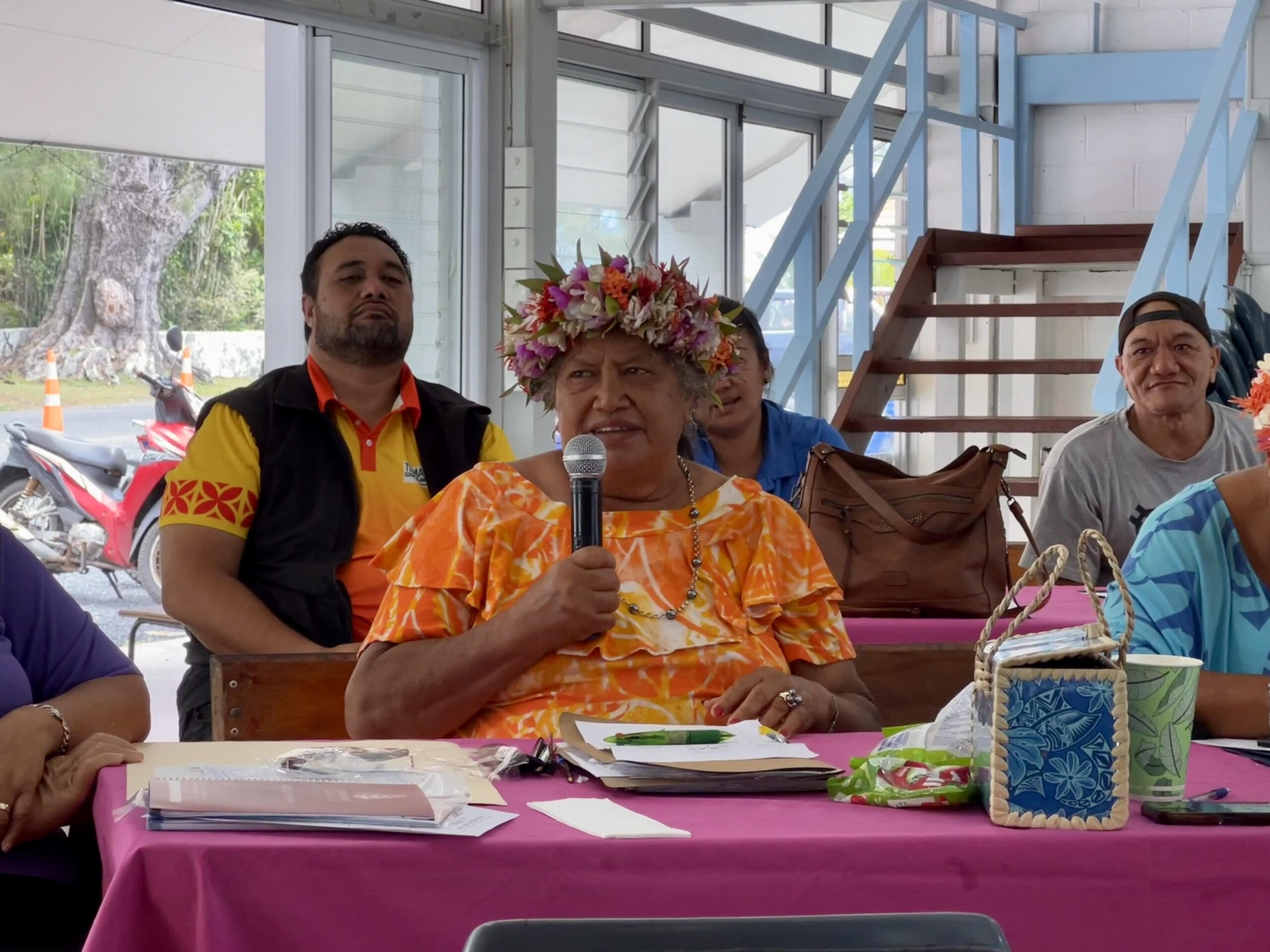Frontline workers tackle stress and anxiety
Thursday 1 February 2024 | Written by Candice Luke | Published in Health, Local, National

Ngarikeitini Tuaati Keu says she’s finally found rest and relaxation after a lifetime of stressors, the biggest of all being the loss of her beloved husband Jack Vaine Keu. CANDICE LUKE/ 24013141
“Anxiety presents in physical sensations, thoughts and behaviour. It’s something most people will experience at some point in life. Shortness of breath, dizziness, palpitations, and sweating can be signs of anxiety. Thoughts may turn to dread, terror, doom and apprehension. It can disrupt routine and relationships when behaviour changes, causing irritability and difficulty sleeping.”
Yesterday at Te Kainga O Pa Taunga mental health workshop at Sinai Hall, the topic of stress, anxiety and worry related illnesses had participants looking inward, to their daily lives and back to their own childhoods.
“Assets mean nothing without good health,” social worker Sandra Cowen shared with the group.
She encouraged selfcare in the workplace: “Don’t donate your time and health. It should be pens down at the end of the day.”
This sentiment was celebrated amongst the crowd with claps of support.
Cowen exemplified techniques to reduce stress through deep breathing, movement, and positive affirmations.
She tapped into common stressors for Cook Islanders. Land meetings, funerals, unveilings, and the responsibilities can all chip away at our mental resilience, especially when they pop up in quick succession.
“Trauma is a buzzword now, but it’s something we carry. Your immune system is affected. We think ‘oh I’ll be right because I’ve always done it’ but we have to retrain ourselves.”
Ngarikietini Tuaati Keu has been through it all, only recently finding calm again in her life after a year of organising the headstone unveiling of her late husband Jack Vaine Keu.
“Now I am relaxed!” she says with a beaming smile and a sigh of relief.
Tini Tivini shared a song encouraging strength and pride, uplifting the group.
Workshop facilitator and presenter Dr Sione Vaka said: “Sometimes when people are anxious their worries are so true to them, but it can be frustrating for us (their loved ones)”
“The main thing is to listen to their issues and problems, and work with them.”
Traumatic events can interrupt thoughts and interfere with everyday life. Dr Vaka recalled a time he was in his homeland of Tonga, after a devastating weather event.
“What happened a long time ago can stay fresh in your mind. The kids would hear the rain and run for shelter.” They were experiencing post traumatic disorder.
Dr Vaka was in Christchurch during the 2011 earthquakes: “It took me a while to stay somewhere that was more than two-stories high after that.”
“When we think about post traumatic disorder we think about soldiers in the army. But with climate change this is happening for us in the Pacific as well.”
Treatments include talk therapy and medication, but he acknowledges that Pacific people need a specialised approach: “It’s important that our talk therapy is circular. We weave and collect relationships and rapport.”
The connection built between healthcare providers and clients/community is vital.
“Destination is important but relationships are far more important.”
He says “talanoa” - tala (to be told) and noa (a sense of harmony/balance) - is required to connect to the community.
“You get to know the family, the situation first, before you get to the issue. We work as a collective, not individually.”
The workshop ends on Friday. Expected outcomes are:
- Better awareness of mental problems in primary healthcare
- Improvement in pick-up rate of mental illness in primary healthcare
- Better skills in detection and primary care management
- Ability to train others in basic mental health problems at community level and improve community awareness of mental health, ill health prevention
- Improved interest in mental health among primary health care workers
- Improved services for the emotionally distressed.












































